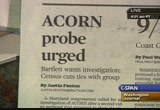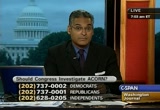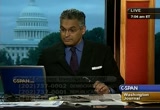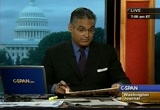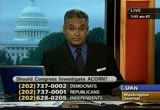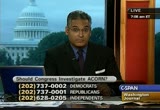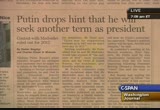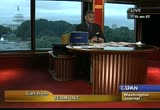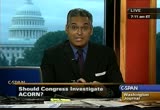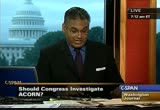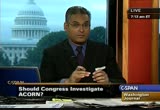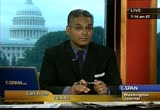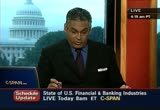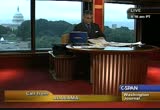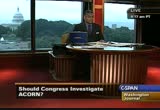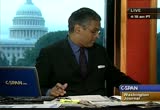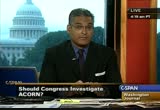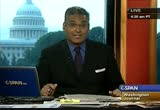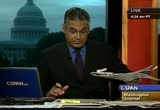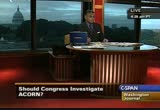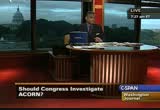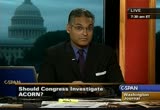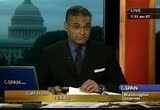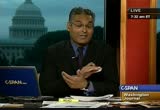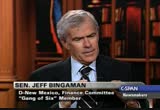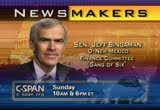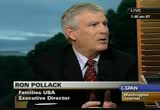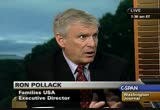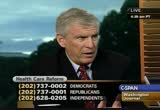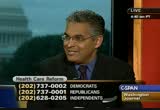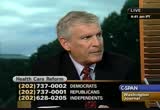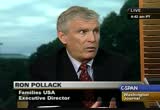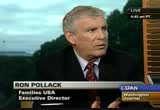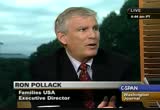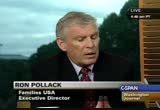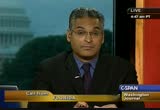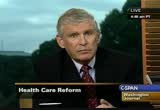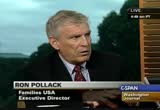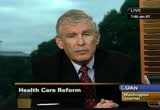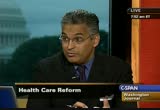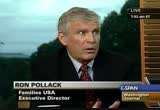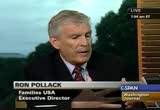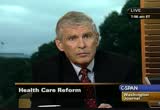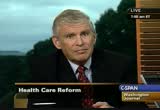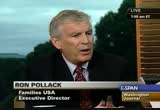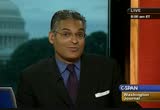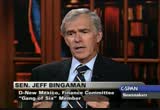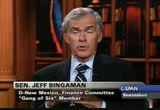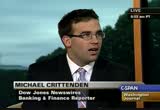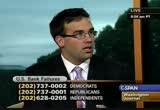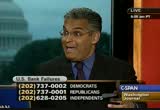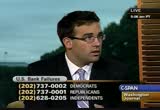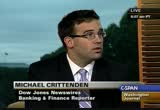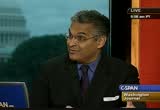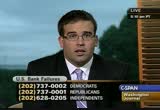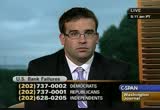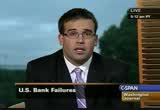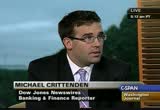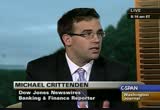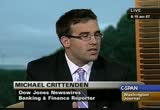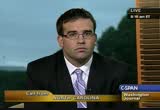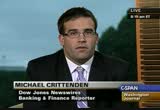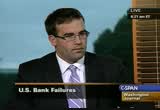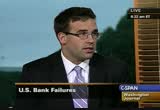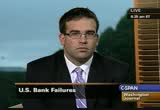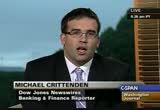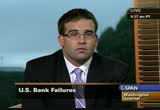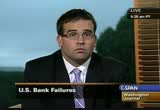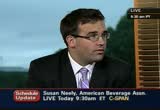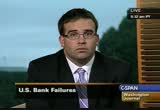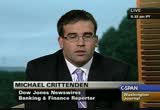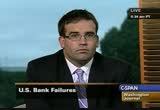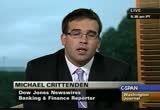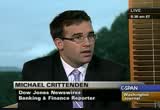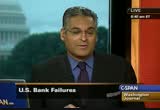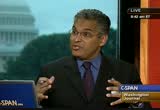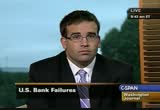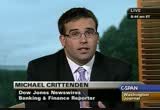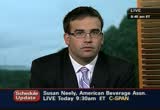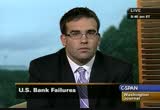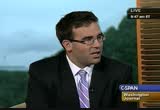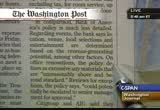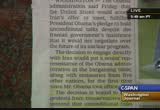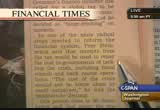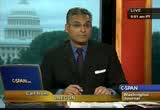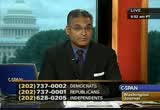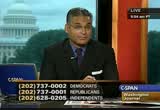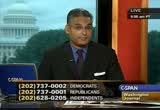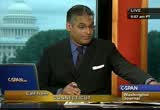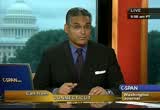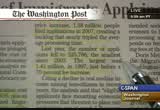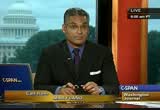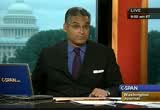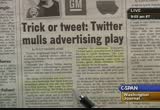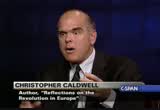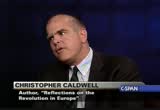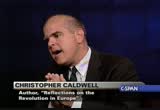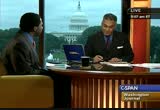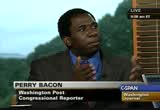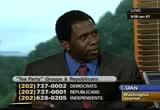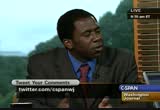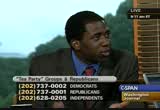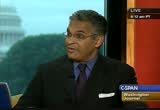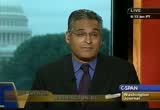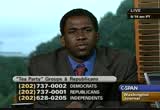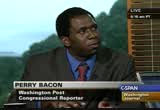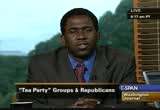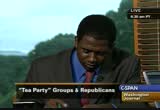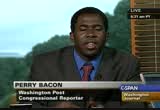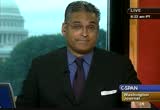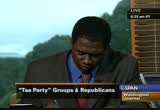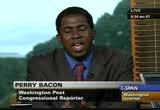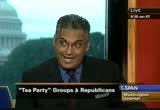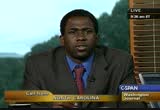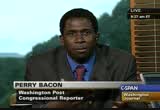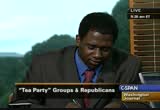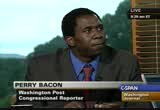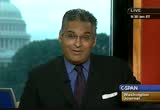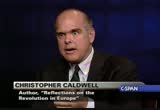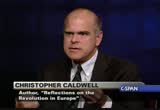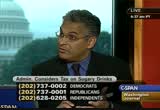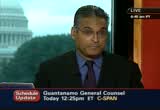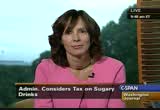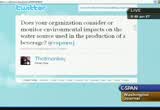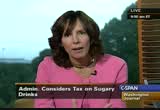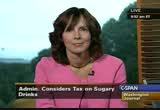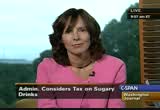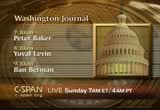tv Washington Journal CSPAN September 12, 2009 7:00am-10:00am EDT
7:00 am
perry bacon and susan neely to discuss any tax on sugary drinks. washington journal is next. >> russian president in the paper hinting he may take another run at the presidency. general motors has rescinded pay cuts for what they call white collar workers. our question, should congress investigate the group acorn?
7:01 am
7:02 am
7:03 am
the email address c-span wj is the twitter address. first up, mark on the republican line. go ahead. >> people need to stop watching so much glen beck but glen beck is the one that brought this to the attention of the people. now it will come to the fruition that glen beck brought them down. another would be that there's no death penalty got taken out. >> we'll leave it there.
7:04 am
atlan atlanta, georgia. go ahead. >> i have to say, yes, i think acorn should be investigated but i also think the rnc should be investigated for things they have done such as when bush was in office, he had a lot of meetin meetings. you didn't get but so far unless you were a republican. >> back to the acorn
7:05 am
investigation is your concern only due to the event of the last couple of days? >> yes, just for that. the president, people refuse to give him the benefit of the doubt. they are not about killing people. they are about helping people. >> lynn done, kwen. go ahead. >> i think they should definitely be investigated. there's always been a great community but acorn has been instrument al has . this was a house nextdoor that i used to live in when i raised my children, i sold it and moved
7:06 am
nextdoor. this was always was good families there and then this young woman and two kids moved in. and then another woman and two kids moved in. then a man moved in. they are all on assistance. we received a letter encouraging you to be alert. there's an increase of crime in the area. they are the ones bringing a lot of the people out in this
7:07 am
particular area. the area is not changing so much as it is declining. democrat line, tampa, florida. >> thank you for putting me on. acorn is a very good group. i know they have some faults like every other group does. acorn helps the person less fortunate or doesn't have a voice. they helped me in tampa, florida go up against our elect rick company. acorn helps the voice that is not heard and help people less fortunate. that's why i seem to think people look down on them. like this last caller bringing the people in. they help the people that opportunity have a voice, what's
7:08 am
wrong with that? jo yes, they have faults. to try to tear them out, i don't think that's right. >> you received significant help from them. what of the events recently with the videotapes? >> i don't[hk believe it will sl the whole mission acorn has. i don't think it should be put to say acorn has a bad organization. that doesn't make that organization die. this is helpful and very out front helping the person that doesn't have a voice. >> another question. something, this certain activity should be brought out.
7:09 am
7:10 am
congress won't do the job. the way they talk about the investigation and such like that, we have this that is totally inappropriate. as a republican, he should apologize. now they are calling for him to have to go before the floor and apologize on the floor. that's fine but what are they doing about charlie wrangle who has been talking about not
7:11 am
reporting his taxes this hasn't been one word about that. there's a double standard when it comes to these things. i think acorn should not be doing any government business and we should suspend contracts with them right a rjts. the census bureau as of this morning has broken ties with them. nia >> i think acorn should be investigated. i do think they should be investigated.
7:12 am
our only problem is that this is going to be a national investigation. there are so many states where people are miss informed to do those things. it was so blatant and embarrassing. >> they were appalled about seeing two washington officials >> from the democrat line, scott in manhattan. >> thank you for c-span.
7:13 am
what are the republicans going to want to investigate next? republicans are so negative that on so many fronts, it's almost boardering on unpatriot yik. they accused democrats of not geing unpate rea. ok ticks. it's high time the democrats stand up and face the negativity that comes out of the republican party and their cable news spin doctor that's spu negativity. >> should there be an investigation? >> republicans should go after pine cones. you understand? >> we are moving on.
7:14 am
>> i want to say the guy on before me, i cannot believe he is saying that. i refuse to give those people welcome into my house. i am glad to see last night that they had -- the census had cutoff all ties with them. 4q0 before i let anybody in my house to take a census, i will make sure that it is not acorn i
7:15 am
think the democrats are going down the wrong, wrong road. >> it should be a big one. all those people they are letting him get away with everything. they are letting acorn get away with everything. >> this is from the "washington post" this morning about the u.s. and nato in efforts in afghanistan. the headline says there is ray revafrp going on. they will establish a new recruiting and generation of afghan forces.
7:16 am
>> next to empire, alabama. >> yes, i think acorn should be investigated. i'm a registered nurse, this reminds me when i first started working years ago. the head nurse i had at that time at the south hospital down here. he was claiming income tax and writing down teddy bears and toys. this is before you had to give a
7:17 am
social security number. these people are showing people how to do wrong. we need people to help others but to do it the right way. the gentleman who called talking about the pine cones or whatever he was talking about. it's not republicans. i am an independent. it's regular people who sit home and see all this going on and feel so helpless and we cannot do anything. the state newspaper this morning about joe wilson. "you lie" equals $2ãmillion. they raised a combined $1.
7:18 am
79 million after 40 some hours after the republican senator called out "you lie." that's out of the washington, d.c. office. new york city on the democrat line. >> thank you very much. this is my first time calling. to tell you the truth, people are so ignorant. acorn is a minor organization helping mostly black people out of poverty. now, if there is wrongdoing, that's what the states and the law is for. you get the state after them.
7:19 am
what congress for such a small organization. amazing. incredible. please, do you notify what acorn is or anything what your handlers tell you. >> about a congressional investigation, what do you say about that? >> it's unwarranted. this is too small, too trivial. get that for big business. host: richard on the republican line. caller: i believe they should be investigated, absolutely. there's dozens of states around the nation being investigated on
7:20 am
voter fraud. these folks are getting millions from the federal government. they seem so incompetent. what scares me is all these people, once they go get thrown out of acorn, they'll end inn up in one of these other places. host: we're going to take a small break from our question to talk about the president. the travels to minnesota today. give us some more context about this trip, joining us mr. tom sheck. why is the president going to minnesota today. caller: one is politics. he was well received in minnesota. he is hoping 20,000 people come
7:21 am
to see him. minnesota seems to have a better turn out of medical care and for a lower price. minnesota is a model. it's well-known in terms of delivering care. for example, the mayo clinic which is known around the world is based in minnesota. they will deliver that care. he's probably going to point to that organization as one that does a good job in terms of delivering quality care at a
7:22 am
7:23 am
trying to stop the healthcare reform plan he added that he hoped others would stop the encroach am as some folks call it into state's rights he's showing the frustration and conflict this this issue coming forward. tell us about the setting. >> he'll be speaking at the target center in minneapolis. that's the home for the timberwolves, the nba basketball team. he filled that a greena with
7:24 am
7:25 am
7:26 am
we need a whole new direction. the change we are getting in our country is not the change that we bargined for. host: on the republican line, go ahead. caller: i think everybody is scare to say what it mielt be. most of the things going on with acorn are due to race relations. i think that the people in this party are so concerned in making sure that they don't want to show any fault in these organizations. here we are. i'm not a very political person. the first time that anybody from a democratic party hears of the tae party going on today or any of the issues that deal with not
7:27 am
supporting the president 100%, they say it's fear. we shouldn't be going against the president and that even just from the tone people are giving off saying we shouldn't be going against acorn because they do so much good things. that's fine. i promise you if this was an organization built by 99% white people for white people, it would be investigated immediately by the democratic community. host: edwards air force base in california was the site of the landing of space shult discovery. it took place after the mission to the space station. this video nasa provided. seven astronauts were delivering
7:28 am
supplies. weather concerns caused it to change locations. edwards air force base in california. video there. host: going next to florida. caller: i'm a liberal democrat. i do believe the party should be looked into. i don't like people in my party or around my party breaking laws. that's why i was happy the congressman with crash in his freezer was investigated. i also think both parties should be looking into their own backyards. if we get the crime and construction out of their own parties, things would be much
7:29 am
better for their country and we could more forward. one last thing. the tea parties, i believe, are just kind of like the town hall meetings. a lot of that stuff is purchased up. i appreciate you taking my call. >> the tea party rally does take place at 1:00 today. you can see it live on this network. we'll talk about this through the morning from a couple different perspectives. until then, we'll take calls on if you think there should be an investigation of the group acorn. host: calvin. caller: this is my first time
7:30 am
calling. host: welcome. caller: should congress investigate acorn? that's a strange question. when did congress investigate anything like that on that level. host: before you move on, could you answer the question? caller: actually, congress does the investigation but when is the last time you ever seen congress investigate any organization like that. this is like the deal. this constant drum beating organization. every time you turn on fox, it is always something going on with acorn. if you keep a microscope on
7:31 am
something long enough, you will find something. that's with any organization. >> the activities in the last couple of days doesn't warrant an investigation or does it? >> it warrants an investigation, congressional investigation, that's absurd. host: dallas, texas. go ahead. caller: i think they should be investigated by congress. in the sense of not dismantling the group but making it a stronger, more effective group. keep in mind, even law enforcement has corruptions but we don't miss mantle the departments because of that. we make it better. even years back when there was a stand al with the president, there was an investigation. we made it more effective and better. we do investigate to make it a
7:32 am
better group. that's the last call we'll take on this subject. coming up, talking about healthcare issues. particularly, talking about the rally that will take place at 1:00 today. healthcare being one of those issues they will talk about. wanted to take a few minutes to talk about our news maker program. you probably heard the term "a gang of six" talking about negotiations between democrats and republicans regarding healthcare. one of the inns commit committees. >> i think it's important to expand coverage to some of those folks. in order to reduce the cost
7:33 am
7:34 am
one way to bring this to the market would be another seller of healthcare, health insurance that would be set up as a non-profit. it would help keep down the growth of premiums in the future. >> you could see that whole interview in two ways. you can watch it on this program tomorrow at 10:00 or 6:00. or you can go to our website and watch the video we have on it yourself. take your pick. you can see it both ways. c-span.org is the website for this. >> joining us, ron pollack, what
7:35 am
would you have to say to the tea partiers out there? guest: first, welcome to washington, d.c. i would say to them that healthcare reform is really very important for all of us we want to make sure businesses having a tough time that want to continue on the coverage. that's what healthcare reform is designed to do.
7:36 am
i think folks who are coming into the town and others. healthcare reform is important. the thing to remember here is what happens in the absence of healthcare reform. in the absence of healthcare reform, the cost will continue to sky rocket. more and more businesses will find they can't afford to find coverage. families are being priced out of care. we saw the census bureau come up with new numbers. we have to stop that. if it turns out we don't get healthcare n/qreform.
7:37 am
i was in the gallery wednesday night. i spoke to the congressional leaders. what i heard from them, particularly speaker pelosi and others in the senate as well. there are issues that need to be sorted out. i think it's going to deal with costs in a way that is going to attempt health coverage affordable. we are going to extend coverage for people who don't have it today so they don't loose it tomorrow? >> did the president clear this up for you on wednesday? >> there's a whole bunch of
7:38 am
7:39 am
there are a variety of measures. there are wind fall payments in the program that the medicare payment advisory just cannot be justified. we want to make sure that hospitals get paid for quality, not quantity of services. we think there can be rebates to fill that so-called doughnut hole so that seniors don't loose the ability to pay for medicines
7:40 am
that they need. there's going to be an effort to make sure they/j÷ get the best research and information of what are the best choices that will be made that are the best for people and provide that information so that they can make better decisions so we couldn't spend wasteful dollars on things that don't work.
7:41 am
7:42 am
trying to replace doctors by post office workers. >> how would you react to that? i want to respect your caller but frankly that's a silly comment. we need physicians. we need particularly primary care physicians. one of the things healthcare reform needs to do is i am pruft supply. good morning. >> my experience with postal workers is that they earn their keep and are notover paid.
7:43 am
i just want to comment on the moral issue. referring to the letter, my question is why shouldít receig healthcare depend upon whether somebody either providing it or financing it can make a profit on it? guest: there's no question that the healthcare system like much of our economy can make a profit off the healthcare system i'm going to leave that question to somebody else the census bureau
7:44 am
released numbers showing the number of people rose again. the numbers are much higher because of the unemployment rise. that 46.3 million figure is more of the combined population of 24 states. that's incredible that we are close to having people outside of the system that is the number of people in almost half the states of the country. i think we can improve the system even if people continue to make money off the healthcare as i think will happen.
7:45 am
we can make the system a whole lot better. >> how do you then offer all those services without some type of rationing as it is called of care. >> as you know, we do have rationing of care today. it is done in a way that i think is the worst way possible. if you don't have insurance or limited resources, you don't get care. people that are under insured, when they get care, they go into big debt and get bankrupted. i am hopeful we'll give access
7:46 am
to everyone in that situation. >> i think what you are referring to is this so-called public plan option or will that be triggered by certain kinds of circumstances like inadequate competition. the jury is still out as to how that issue is going:iy to get resolved. that's one of the truly contentious issues. the trigger mechanism you are referring to is something the senator has been championing. it's going to get a lot of attention whether this is the way it gets involved is something we have to wait and see. >> i like the idea of getting this public plan to give a choice to people. >> they can choose a public plan
7:47 am
as well. i think the public plan would provide a bench mark in terms of cost that would improve competition and help to drive costs down. as i said, that issue has not been resolved. the president is clear that he doesn't want that to be the be all and end all of healthcare reform. he is planning to look at other ideas like the trigger mechanism. >> good morning. i think the comments you are making are absolutely on point. he has given some of the most intelligence information around. there's one point i would like to ask. everybody says it would be a bad thing to have the public option.
7:48 am
7:49 am
first, i appreciate the compliment. he must be a long lost relative of mine. it doesn't have to be an expansion. the president has proposed that. he would like to see a new system of exchanges that is a insurance companies and possibly a public plan option would be offered. those plans have got to meet certain standards. they cannot deny coverage to somebody with a preexisting condition. through those choices. hopefully you can drive costs down because you'll have
7:50 am
insurance companies competing with one another and the private plan. miami is next, kelly on the republican line. i don't understand what's happened to my party. i'm kind of ashamed as a republican to see the way they have been behaving with mr. wilson's behavior and the like. my question is where would someone go to really find the facts on the healthcare issue? my party is just not providing any facts. they seem to be just the anti party at this time. i would like to have better
7:51 am
information. >> one thing we have is www.families u.s.a.org. i really sim pass thighs with the party. you don't want one party to be viewed as the angry party of no. there are a few republicans that would like to join this debate. you have this gang of six. you have them sitting down with the democratic colleagues. they were sincere trying to work something out. i think there's a good chance senator snow will.
7:52 am
senator grassley does. he wants good solutions. my hope is that some of the more responsibly members will choose to accept that representation. >> how do you think they will -- at least will they sign on at the end at least to what the final product will look like. the moderate republicans, the blue dogs, ultimately, they will have their imprint. they are not just going to give a blank check. the leadership are working with
7:53 am
those members to make sure the input is provided. congressman mike ross, a blue dog from arkansas had discomfort from some provisions. he wound up having an imprint in that process. i have no doubt that people like senator ben nelson of nebraska who is a more conservative democratic senator. at the end of the day, you are twoing to see democrats support health reform and hopefully in the process, when some of the more conservatives support it, some of the democrats will support it as well. host: is there a model in the united states or throughout the world that we see a system where healthcare costs are controlled
7:54 am
or kept to reasonable standards? guest: what the president referred to -- you asked earlier about why is he going to minnesota. there are some model systems around the country in minnesota, in utah, pennsylvania. there are different systems where nurses and systems work together as a team so that you sl a coordinated process. those systems work better in terms of producing quality of care and keeping costs down. a lot of the costs in our system are because of waste. i don't meep like the typical fraud and abuse. often people get services that are not helpful. some are harmful.
7:55 am
they need their care coordinated so tha that one specialist doesn't undo what another specialist is doing. those are providing higher quality care. we do have models to choose from. ron pollac is our guest. host: you are on the air, sir. go ahead. caller: i have a quick comment and i will follow it up with a question. my comment is i'm wandering why americans are failing to realize the scaring tactics of the republicans they did this prior to the war in iraq. right now they are scaring folks all over the place. i'm wandering why we don't
7:56 am
7:57 am
people with problems outside the age of 40? guest: i think the bottom line response is there are going to be very different plans offered. some will offer this, some won't. each consumer because they are going to be a variety of plans through this marketplace will have to choose which plan is most responsive to their needs. host: one more call from texas. caller: this is not really about healthcare. it's about power. obama and the democrats want as much power over the people as they can get. like this public option. if i'm an employer and it costs
7:58 am
me 10% for people's healthcare. i know with the public option, it's only going to be 8%. i'm dumping them in the public option. president obama has said so. he said we have to get this public option and in five or 10 years down the road, we'll get what we wanted after everybody gets dumped into the public option. it's on you tube. barny frank said the same thing. the public option is the tool to get their foot in the door. insurance companies go away and they control everybody's life because they have your medical records they have your income tax records.
7:59 am
the i.r.s. will determine who gets what by the amount of money youty make. guest: what the caller fails to recognize. the president does not want a single payer system. he wants private choices and public options. he is open to listen to better ideas. the bottom line is that physicians, nurses, they are going to be making decisions. these are not going to be decisions made about healthcare. i don't want insurance companies making decisions about my healthcare. i want to be sure i'm in a system where professionals are giving me advice about how best
8:00 am
to meet me and that i have a say in that process as well. host: thank you for your time this morning, ron. guest: thank you so much. >> coming up on washington journal stay with us. host: we'll talk about statements made and that issue as well. we'll remind you on our news maker program. talking to our reporters, he talked about healthcare legislation that could be
8:01 am
8:02 am
not have a public option in it, can pass the senate? >> well, i don't know, frankly. i don't know if it can or not. but, again, i think this is a multistage process and the first stage is to get a bill out. senator baucus is committed to doing that next week. the second stage is to do the markup of that legislation. the third stage is going to be for senator reid, as the majority leader, to decide what portions of the finance bill, if we're able to report a bill out of finance, what portions of that to bring to the senate floor or what portions of the health committee legislation to bring to the senate floor. he's going to have to merge those two. >> senator jeff bingman, democrat from new york on the finance committee, the gang of six as it's called that he's a part of. you can see him tomorrow at
8:03 am
10:00 a.m. or 6:00 p.m. you can go do our website as well and watch that complete conversation on line if you choose to doo so. our guest right now, michael crittenden. three banks closed yesterday. what are they and what's their significance? guest: well, it brings to 92 the number that failed. the big one was chorus, it was being kept alive long enough to sell off. $7 billion in assets, a pretty sizeable bank. so what we're seeing is continued problems. everyone wants to talk about the worst is over but that durblet mean there's not a lot of pain to come. host: you said there are problem. what's happening? guest: the same problems that have been causing the financial industry headaches for the last few years and the economy, foreclosures continue at record paces. now we're seeing bigger problems in commercial real
8:04 am
estate, construction loans. basically, the ripple effect from the original housing crisis continues. and because the government's found it really difficult to deal with the housing crisis, these problems are going to continue. >> host: with these banks closing, do other companies tend to pick them up or do they just fade away? guest: traditionally, the fdic will find a buyer for say a small bank in some rural community, they'll find another buyer to meetly come in and take over the branches. customers won't see any problems. in the last year we've had some problems where thaved to hold on to some assets. they're not able to immediately find a buyer. and they're trying to increase the pool of folks who can purchase these but it is a growing problem where you have the -- we're seeing failures at levels not seen since the s and l crisis in the early 90's. host: we'll continue this
8:05 am
conversation. the numbers are on the bottom of your screen. with these smaller banks closing, what happens to the idea of smaller banks as part of a community? one of the things i read is that they tend to be bought up, you're going to just have the congom rat big banks. >> that's the situation we're in and it's a direct result of the government's policy over the last year and a half where they've made the desigse where your biggest banks aren't allowed to fail even though they're really at the root of the problem and the smaller banks are allowed to fail because they aren't deemed a systemic risk. so it is creating a situation where we're going to have a number of really large
8:06 am
stranchinging institutionings. we're also going to continue to have smaller banks. but in the middle one of the big casualties is maybe your regional bank and some of the names people know, maybe not a bank of america, two or three steps below. those banks are in trouble because they're not going to receive the help. host: do they still serve a purpose? guest: most people would say yes. that having five or six large firms which is what you've seen in the health insurance industry, does lead to problems, a lack of competition. they can -- they don't have to chase each other. they can compete on their terms. host: with the continuing rate of banks closing, what's the condition of the fdic to protect the assets? >> well, they'll tell you no depstor hasr lost peany from a bank that's failed. as long as they're in the insurance limits. the fdic though is coming under
8:07 am
pressure. their deposit insurance fund, a big pot of money that they hold to protect against bank failures and to protect consumer dep sits is dwindling and they've taken very aggressyi steps but they're going to have to take more steps. earlier this year they assessed a $5 billion premium on the banking industry to pay to help sort of replenish that and most expect they'll do that again in the next few months because they have to. they've also set aside billions of dollars. so this is a -- it's a growing problem. host: have they had a voice in howing to resolve this problem? guest: they lobbied for congress to raise the ability to borrow money from the treasury, steps like that. they've also changed the way they assess banks to pay. because that's the way it works now. it's sort of like car insurance for the rest of us. but banks pay in and they get the fdic seal on the door and
8:08 am
people can feel confident. so for consumers it's not goirning to be a big deal because they won't -- it's sort of behind the scenes. but for banks, it's going to be painful when they, facing lowering profits at the same time that they have to increase the money they're paying to the fdic. host: is the banking system currently set up to accome date these small closures we hear about or is there going to be some point where there's dangesner guest: i don't think there's a danger so much as there is going to continue to be turmoil for the next couple of years. there's a bunch of mortgage loans not subprime, not prime, sort of in the cloudy middle area. a bunch of those are supposed to reset intre rates next year and people are predicting those are going to default at high levels. so you're going to continue to see problems. but banks fail. banks have always failed. earlier this decade, sure, we
8:09 am
didn't see many failures and it's creeping up. but we're still not at levels like the savings and loans crisis but we are moving in that direction. host: again, you can call in or e-mail in. washington, d.c. up first on our republican line. we hear from sue. good morning. caller: good morning. thank you for c-span. first, i have a question for your guest and then i have a quick comment. on the small banks, when they started getting in trouble was it because they offered to sell their mortgages to bigger companies in bundles or was it the bigger security companies that forced them to sell? i'm trying to figure out how small community banks got in trouble? guest: a lot of the banks, i think the problem is a lot of them got caught up in the
8:10 am
froth, if you will, of the housing boom. where you have some of these smaller banks that got in over their head. they were savvy enough but they saw these huge profits being made in construction loans, housing loans. so they made a bunch of loans. not all loans are bad but they didn't have the internal controls or risk management processes in place to deal with them. so i think a lot of these banks, and to do that a lot of them depended on the very volatile source of funding called brokered deposits where they collect deposits from around the country as opposed from their local neighborhood, their community. so a lot of these banks, once the housing market started, you saw the downturn, that's when they got in trouble and they suddenly didn't have the money to meet their expenses. so i think a lot of these banks got in over their heads. bad management or just management that just didn't know what it was doing. host: you had a followup?
8:11 am
caller: it's not on the bank, it's on the health care issue. i'm an independent from florida, my husband's a republican. we drove up this weekend, one for the rally on sunday and i hope that you cover the rally for that. my husband is a staunch republican. we watch the president speech the other night. he threw his voter registration card at me, he said blow it up, because it does say republican. he says, i don't care if my taxes go up, i want single payer. host: we will cover that rally. it starts at 1:00. atlanta, georgia. caller: hi. thank you for taking my call. i'm a recruiter and -- in construction. and most -- 100% concommercial construction. my question is can you forecast when the banks are going to be able to fund projects again?
8:12 am
host: that's a great question. and probably experts better than me would be better suited to answer. but i think there is the expectation that for at least the next year the national association of realtors put on a survey i think a month or two ago suggesting that commercial real estate, if it was going to recover, it would probably be towards the end of 2010 before you start to see sort of stablization. i mean, we haven't really seen the worst in commercial real estate yet. so that will be an ongoing weakness. and secretary -- treasury secretary tim geithner the other day on the hill said that commercial real estate is one of the areas that are still outstanding that have yet to really settle. so i think it's going to be an ongoing vulnerability. host: would the various voices be from the congress or the treasury department or the federal reserve say about oversight on this issue? because senator dodd here today said there wasn't enough
8:13 am
oversight as far as the underwriting of these loans. guest: they took 14 years to write regulations that they had been able to write as early as 1994. so it sort of plays into the ongoing debate which is going to be a much bigger deal in the coming weeks on the financial regulation. how do you oversee the financial markets? president obama on monday is going to throw his hat in the ring and has been taking a back seat to health care. everything has. but they're going to really put the -- shine the light on this issue to sort of bring it back to the forebecause this is one of their major legislative priorities. it's been quieter and moving along behind the scenes on the hill, many hearings, some legislation. but i think in the coming weeks you're going to see a focus on how do we prevent these problems from happening. how do we regulate the banking industry better. >> host: is there a main thrust
8:14 am
coming from the administration? guest: they've put out pages of propose lts. the big thrust is unefying regulation, instead of having three or four serving oolingfa bet -- they want to make sure banks don't take these risks, that executive compensation isn't based on me leveraging my company up 10 o 0-1. they say it's going to be on sound underwriting, sound business practices. host: how many various factions currently regulate banks here in the government guest: you have occ which oversees national banks. the office of thrift supervision. you have the fed which oversees some bank holding companies. you have the fdic which with state regulators oversees a lot of state banks. you have state bank regulators as well. so you have all these diveraget
8:15 am
factions. host: are we talking about a merger? guest: the administration has suggested maybe merging the occ and ots which would pull in most banks and then the question of how they deal with the state regulation. so we have all these groups that each of these agencies has its own little thiefdom and none want to give up power. and treasury officials have acknowledged as much. they understand that. because a lot of their proposals have taken a hit on the hill or been criticized by these regulators over and over again. and they understand that. it's a turf battle. host: if i'm a bank, what's the single largest fear i have from this proposal? guest: i think for banks, for banks it's not too -- i don't think for your average smaller bank it would make too many changes. the name might change. but your regulations are going to be basically the same. i think the big thing for banks is that basically from 2000 to
8:16 am
about 2007 they were allowed to do whatever they want. basically we tested the private market theory of just letting firms do their thing. it didn't work because greed comes in. they get ahead of themselves. everyone just wants to make the money when they have the chance and we've seen the result. and so i think for your average bank not much would change. it already has. since the last couple of years regulators have stepped up regulation. they're really paying a lot more attention. they're more aggressive about making banks make changes. host: chicago is next. charles. caller: i just want to make a comment. i would like to see our president, our house and senate, instead of giving all the stimulus money to the same crooks, their friends, maybe they should start passing it out to the people. i've heard different stories on how much each person is spaying
8:17 am
in taxes that we're going to be paying back to the chinese government. but, hey, if everybody got 20 grand they would probably put half of it in the bank, which would help the banks out, they would probably go out and spend the other 20,000 which would start creating jobs in this country which is the main thing right now. i don't know. they need to wake up and get off their lazy butts and get their head out of their -- you know what i'm talking about. thank you. guest: well, i think that has been an issue. the caller sort of touched upon it, is the savings rate which is something we didn't see much of over the last few years where people were just using their home equity lines as an atm. the savings has not been where it needs to be. and i think that is, you're going to see a growing issue where people are more conservative with their money. so it is i think that is something that this country as a whole, as a culture we need to focus on is savings.
8:18 am
host: republican line, keith, north carolina. caller: yes, my question is i'm totally disabled and my wife is 55 years old. and what i don't understand, why they don't -- you know, you don't sick and disabled -- my question is, why the rich are getting richer and the poor are getting poorer. guest: i mean, there does seem to be this focus on getting wall street back on its feet before maybe main street. and i think that has been a fair critique of u.s. government policy over the last two years. in the same hand, officials both in the bush administration previously and the current administration, will sort of explain to you that if you
8:19 am
don't have the financial -- if you don't have the financial system working, nothing else in the economy works. that they're sort of the lube can't that makes our engine work. and so maybe that's a structural problem that this country has to address that we do rely on wall street to generate wealth and money and capital to such an extent that if there's problems on wall street nothing works, that main street doesn't work. so i think that is a question the fact that many of these folks are still going to get billions and billions in bonuses the next few years. so i think that is a fair question and it's the type of thing voters have to express to their congress people and elective representatives. i think that's a fair concern. host: there's a story this morning that general motors is rescinding the pay cuts they once put into place for white collar workers. one of the officials from gm says we're in a period where employee morale is very
8:20 am
important. are we going to see more of that? verageds you're already seing the wall street firms push back. i'm impressed for at least two months they pretended not to feel that they deserved their millions of bonuses. call me a cynic. but i think that is a focus. that's sort of the idea everyone is trying to say that we need employee morale or if we don't give these bonuses hedge funds or someone else will so we can't lose these skilled workers. i think the counter to that is there are tons of wall street professionals who are either out of the job or maybe not in the job they want who may be able to fill some of these positions. it's hard for the treasury department and obama administration because they've been very clear, they don't want to control salary levels. they're not in the business of that, they don't want to be in
8:21 am
the business. no interest. at the same time, if a company's received $25 billion in u.s. funds or more in the case of some firms, you know, as a company's largest share holder we do have an interest in how much executives are getting paid. so it really is a fine line. and one thing banking regulators are trying to do and won't affect the car companies is create sort of a structure so that the incentive program isn't -- employee compensation isn't based on taking excessive risks. and that's difficult. but having a structure in place which we don't have now will at least allow them to say, hey, to a bank, like you guys are a little risky and it seems that you're doing that because it benefits you. you know, as an individual. host: you talked about secretary geithner. he testified this week regarding tarp. in the end what was the end result of tarp money being
8:22 am
spent? guest: i think you could say it stabilized the financial system. that said, we still have banks with billions of dollars of very terrible assets that haven't really been dealt with. they haven't been as big a deal because we've put all this money in the stimulus money earlier this year has played an enormous role in restoring confidence and sort of things aren't necessarily getting better but they aren't getting worse. so i think between tarp and the stimulus, the u.s. government has thrown a ton of money at these issues. i think you could probably say it's worked for the most part. but that doesn't mean -- i think people, viewers, everyone, they see the problems in their own lives and saying none of these things are working. actually, they are, but it's hard to sort of trickle down, basically. we've stopped the biggest problems and now we have all these other problems to deal with. host: does that mean banks are lending more
8:23 am
guest: banks aren't lending more, they're lending less. but they are lending, i think the treasury would make the argument that they're not lending -- lending hasn't decreased by as much as it would have had we not helped these institutions. and the numbers get a little foys and they're played with a bit depending who you talk to. but i think banks are trying but at the same time they're very skitish, they're just like a consumer, an individual who is looking to save their money to make sure they don't overextend themselves. there's sort of a reflection of the overall uncertainty. host: will see we the tarp program go away or more of into a different system? guest: what the administration, and you rally saw it this week from secretary geithner and from treasury officials in the various briefings, they starting to talk, they're trying to send the message,
8:24 am
hey, we're trying to extract ourselves. and i think you're going to see more of that, slowly start to extract ourselves from the banking industry. whether that's wise i think is debatable. i think there are still a number of existing problems in the industry that probably still need to be dealt with. whether the industry can do that on its own or might need some government aid. i mean, it's like with foreclosures. industry for a year and a half said we'll deal with this problem. don't mess with us. they never did. the industry basically ignored the problem. it still hasn't made a very aggressive effort. we'll see if it works. host: our guest, michael crittenden. hartford, connecticut. caller: good morning. i would like to know why has all the billion nares put their money in swiss banks and the country has failed to all the
8:25 am
people that took their money out of the banks and kept it over in the swiss banks for centuries, and that all the banks always get the taxpayer money, but when it's time for us to come back to go borrow, it's a big big problem. and i would like to know what could the country do to help the democrats to stop all this that's been happening for centuries and centuries. and the poor people really not getting anything because we still poor. and we're going to continue to be poor if we don't get -- if we don't get no help. guest: well, i think that is a fair point. it's something as a culture, as a political body our country has to deal with the fact that the wage basically the wage gap between the top line and the
8:26 am
bottom line continues to grow. that is a huge discussion. an issue like it sort of reflects, it's even a bigger issue than health care in the financial system. i think to the point about swiss banks and people sort of escaping regulation, that's one of the things i think the administration, law makers want to deal with, how do you close some of these loop holes that allow people to get favorable tax rates, to basically act outside the system in some cases? so that's something i think the administration will continue to look at as part of their regulatory reform efforts. host: atlanta, georgia. caller: just listening to the last caller and listening to your guest, i don't know if we're really learning any lessons. your last caller just said what can the government do to help poor people out. the government did that 12 years ago low no money down and look what happened. we had the biggest meltdown not
8:27 am
just because of their side but then the wealthy went crazy borrowing money, leveraging on real estate. but the biggest thing to me is we still haven't learned our lesson. you used to go to the bank, you knew you would get a federally insured. you decide br to put your money. when banks were able to get into this business, they were able to create these morges and when the whole thing imploded now the government has to bail out both the risky side and the conservative fdic side. and i don't hear anybody talking about limiting the due at and reestablishing what fdr did recognizing that was the primary thing that led to this demise of the banking act. and i don't hear anybody in the obama administration talking about the eventual die vest tur of merrill lynch, bank of america. the two are just totally clash
8:28 am
with culture and style. you should have one group that is for venture capital and risk taking and another group that's sort of for mom and pop conservative investing. and i don't know why we can't go back to normal. but when you have a caller who said we've got to help the poor and then you've got barney frank and says hile make it possible for you, just keep voting for me. here, have no money down loans and then the housing market crashes, people walk away. and then you wonder why banks are reluctant to lend money. guest: i think the caller made a very important point. basically, the banking laws which were repealed, no one's really talking about repealing that and going back to sort of the much more basic system that we used to have. i think it's this cultural shift we had where suddenly everyone instead of having a
8:29 am
pension, everyone was all focused on 401 k and basically spreading call street to the masses. we've seen many of the effects of that with people unable to retire, working much later and we've seen the problems that it's caused in the banking industry. so that's a very fair question. but honestly, no one here in washington is really talking about that. republicans aren't talking about it, democrats aren't talking about it. host: why not? guest: industry likes, they want graham leach blyably. they want banks to be able to get involved. they want -- because it creates a much more fluid financial system. but it also comes with structural problems that we've seen. like he said, it used to be pretty straight forward. you go to your bank, get your mortgage. now, you go to your bank, you can get brokerage accounts. you've seen such a -- the sort of consent rick circles of
8:30 am
banking just continue to grow where now these banks do everything and some of them really do some of the stuff really badly. and you've seen the problems they get themselves in. host: as an industry i know you don't cover congress but -- guest: i spend a lot of time there host: are you still seeing as financial backing various legislators? do you still see that same kind of rate? guest: of course. they're still one of the most aggressive donators to congress. there's a reason the health financial services committee is one of the largest in congress. that's where the money is. they continue to do nate very high levels because they have a lot at stake here. they're doing everything they can to lobby, lobby, lobby. one of the biggest pieces of the administration's reg reform plan is a consumer financial protection agency. so that the no money down loans with interest rates the last caller mentioned couldn't be offered to folks who have no
8:31 am
ability. it's pretty obvious in some of these loan files if you look at them that people were given loans or talked into loans that were worse than what they qualified for but banks knew they could make a higher rate of return on the less and more risky loans basically. so, and one of the key aspects of the administration plans is to create an agency to deal with this stuff. so just bring some common sense back. the industry is aggressively lobbying against this to the debt. senator dodd one of the things he talked about when he said he was returning to the banking committee was that was one of his priorities. so we'll see whether it works. i mean. host: will we hear more about this on monday? verageds i think president obama with his speech in new york is going to stress these things and try to explain to the american folks what it means for them, why people should care. because reg reform is not a sexy topic. it'sd in weeds, it's banking regulation. but it is very, very important.
8:32 am
host: depeer park, washington. you are next. caller: good morning, john. a government by and for the people shall not perish from the earth. now, we've got ron paul's bill 1217 that's going to come up and we're going to have to get back to sound money. i don't know if your guest actually believes anything he's saying. i don't get this. we have a problem. we have a quad rillion dollar problem. admit it. the derivative across the globe more money than ever existed. we've got to get back to glass steegle. our problem is our congress and senate are 100% corrupt. you're gining to see people on the streets of washington to tell you that when you hand out trillions of dollars and the citizens who pay the taxes don't feel the effect you're going to have a polar shift in your government. now, have you done any study on what we can replace this corrupt financial system with?
8:33 am
i mean, we're going to have a problem and we're going to have to abolish the federal reserve system. we can get out of the contract under the 16th amendment. have you done any study? because we're going to have to try to have a smooth transition. guest: well, i think there is he mentioned the ron paul bill which is this house legislation that will allow much greater government auditors to take a closer look at everything the federal reserve has done. that has actually received a lot of support. surprisingly. from where it originally started where i know representative paul introduced it and then suddenly it's gained steam to the surprize of a lot of congressional leadership. i think the feds even acknowledge that with a little reworking it will be something people can deal with and that won't affect monetary policy. but i don't think anyone is talking about abolishing the
8:34 am
fed. caller: i was wondering if your guest could comment on his performance and his colleagues in the financial news reporting industry's performance and warning the american people of this ticking time bomb that exploded on our economy. i think regulations are important, but a better check against greed and inhumanity would be a robust professional news service. thank you for taking my call. host: that's more than a fair point. i think that there definitely was cheer leading in the press, in the business press. there was also a lot of folks taking a close look at a lot of these issues, raising some of these concerns. speaking from -- i can speak from personal experience. i remember writing a couple stories about, hey, this seems like it could be risky at some point. but really, there is this whole
8:35 am
culture that no one was really interested in shining too bright a lite because everyone was making money all the way down to the citizenry as well where people were flipping houses. so i think of course the press can do better. and, you know, it is difficult with dwindling resources in the industry, but that is our job and we're to be held accountable, too. host: sacramento, california. you're next. caller: yes. i was listening earlier about one person who wanted to basically reinstitute the glass spiegel act. actually, the repeal of the act actually helped the federal government get out of the crisis because some of the banks bailed out by taking them over the national wall street firms. my second point is when you look at all the crisis in the last 15 to 20 years, it's because of excessive leverage. you look at the dot come
8:36 am
bubble, you look at the real estate bubble, whatever, people are leveraging. and i think what the fed needs to do, i don't know if they have the power. if they don't, they should have the power. if they do, it should be a matter of public policy to take some of that leverage out of the system when it overheats. when you see bubbles coming. and i would like to see what his opinion on that would be. guest: i think that's a great idea. i think that is something that policy makers are discussing, is how exactly you contain leverage while still allowing for risk taking that creates theoretically creates wealth and allows the flow of capital. so i think that's one thing where maybe you have different leverage ranges for private capital, private equity. you're going to let investors like that who is taking 100% of the risk themselves with their own money, you're going to let that person have a higher leverage rarkeyo than a small
8:37 am
bambing -- ratio that a small bank in some rural community in iowa where they're not prepared to take 40-1. so i think that is one of the things policy makers are discussing is how do you really contain leverage or how do you deal with it in a common sense way. host: for all these factions involved, will the federal reserve get more involved? guest: the administration's proposal is -- would give the fed much more authority to oversee systemic risk. sort of the biggest problems. and would give them more powers. i think there's a lot of skepticism, though, especially on the senate side where the interest in sort of having the fed have more power may not fly. now, they probably are right now the best regulator to oversee the systemic risks. but whether or not we have maybe a council of regulators who would have a little -- operate as a check or the fed
8:38 am
-- i don't think the fed is a much more powerful organization is going to fly on many checks and balances host: skepticism over what? guest: basically their performance ahead of the financial crisis, i think, not writing rules for regulations, taking forever on credit cards. sort of the plotting way they went about. and some of this spans back to the greenspan fed where they weren't very aggressive. i think you can argue that on consumer protections and a lot of these issues that law makers hear about. so on those issues the fed probably fell short, i think, most senators would say. so i think on the senate banking committee there is a lot of, i would say, skepticism and probably would favor giving maybe a council of the s.e.c., fdic, some of these other agencies to operate as a check to the fed. host: is it a transparent organization? guest: seeing try -- trying to
8:39 am
get myself in trouble. in some respects, yes. they produce just reems of data all the time. at the same time, they are very concerned about sharing some information on who is borrowing from the fed because it could be seen as a scommettive disadvantage if one financial firm is borrowing and another doesn't have to, they don't want to give the impression that borrowing is a bad idea to provide liquidity. so i think they and all the other government organizations over the last year have become a huge source of freedom of information act requests, from my organization, from other organizations, the fed recently, judge recently said they have to give up more information and they're complying with that. it's an ongoing process, sort of a give and take. for six or seven years earlier this decade, freedom of information didn't have much teeth. the obama administration has made it one of their priorities
8:40 am
to be more transparent and i think you're seeing some of that. host: north ridgeville, ohio. independent line. caller: host: one more time. we'll go next to louisville, mississippi. caller: yes. host: you're on. caller: yes, sir. we're talking about the rich getting richer and the poor getting poorer. i can't understand why the real working man makes $7 an hour and the people at home, you know, the c.e.o.s and all getting $20 million a year, don't you think that has
8:41 am
something to do with poor getting poorer and the rich getting richer? i don't see wages haven't went up for the working man for several years. host: will there be big changes as far as c.e.o. pay, do you think? guest: it's hard because law makers are very concerned about being seen as trying to set wage rates. and there's this argument that we're competitive and if my competitors offering more to this candidate. you know, like with any job, a lot of people are going to go to where they're going to make more money. host: from welcome back wall street though is there an attitude that c.e.o. pay is -- guest: their attitude is why don't i deserve that? there is that attitude of why shouldn't -- i'm creating this wealth. why shouldn't i make it. and i think earlier this year you saw with the a.i.g. situation where there was real public outrageous.
8:42 am
and i think, especially as the caller said, where people aren't -- wages aren't keeping up with inflation, wages aren't keeping up with expenses, with health care costs, their money is not going as far as it used to. i think it is a source of public outrage. and especially entering another mid-term election next year you're going to see a lot of people, a lot of lawmakers tact to a populous stance. host: is that continuing to firms that took tarp funds? guest: yes. and whether or not the treasury is going to drive a hard bargain with them. because the treasury can take a look at some salaries or at least there is some oversight. the treasury has a pay official who is focusing especially on the firms who received the most government aid. whether or not they're going to drive a hard bargain, probably not. it's not really in their blood. but i think you are going to see them try at least to explain that it won't look good if some of these guys get
8:43 am
millions of dollars. host: on our republican line. caller: good morning. thanks for taking my call. i was watching your face when you were asked the question if you think the fed is transparent. stop lying. you know what's going on. as far as when you say the wall street generates fortunes and wall street generates money. wall street doesn't do any of that. wall street plays a shell and peanut game where they keep pressing numbers. the average american workers that turns the wrench on a car or plants crops, they're the real workers. and what i submitted was that the government should have never bailed anybody out. when you babe f bail somebody out you reward them with bad behavior and you reward them by saying go ahead and do it again. there's ebs and flows, and i'm a pure capitalist. if i have a bank and if vi a widget store and i no longer produce widgets that are going to make a profit, i should go out of business. and all of these fat cats on
8:44 am
wall street with all their billions of dollars that they play games with, the government should have never ever stepped in. my question, what do you think the economy would look like five years from now if the government didn't bail anybody out at any time, not ever? don't ever give a dime. guest: i think the comme would look much worse than it is today. talking to folks last fall, right in the midst of this, a year ago today this weekend, next weekend, where the economy was on the verge of collapse. if you suddenly have no capital working through the system, you know, paychecks aren't going to get met. that was one of the fears for a few weeks was that if the banking industry did collapse and suddenly there was no liquidity, paychecks wouldn't get met, projects wouldn't get funded. basic things wouldn't get funded. i think the economy would have been a lot worse. whether they acted in the right
8:45 am
way i think is up for debate. i think they made a number of missteps. but i think the general idea that they had to do something was correct. the lack of confidence was staggering. host: one more call from new york on our democrats line. caller: hi. i was calling because i was listening earlier when you were talking about the problems started when they started making low income loans when banks started making low income loans. and i don't think that's the case. i think that what happens back in the 80's, the banks were deregulated, glass spiegel started to peel away. and then the banks wanted an opportunity to make tons of money and they were doing it and then the democrats came in and then they forced the low income loans. but back then those loans were very controlled. they had the same terms as regular loans, same underwriting criteria. they only had low rates. then in the o 2000s, when the republicans came back in, greed
8:46 am
took over and they saw an opportunity. they didn't want to make the loans at the low rates because they thought it was risky and they started charging exorbitant rates. they expanded it not only to the low income but to the middle class and very rich. that's where the problem came because they didn't have any regulators because the republicans feel that regulation is bad. so i think that this -- i keep hearing it on the news and i just had to call in and say i don't think it started with the low income loans. i think it started with they started making these high interest loans with no kind of check and balance. host: final thought. guest: i think the call ser right. it's not subprime lending that was really the problem here. i think the lack of regulation was the problem. that became sort of inculcated in our system was these guys know what they're doing, they're bright, they're the masters of the universe. let's let them do their thing. that failed. because i think any time you have a system based just on greed, which is what our system is based on, people are going to continue to push the
8:47 am
envelope. unfortunately, as we have seen, that leads to major problems. if there's no one there, if we don't have that person overseeing saying, hey, what's going on here? what are you doing? is this really smart. so if we don't have that, i think policy makers are trying to debate how to do that and i think we're going to return to a little more common sense or more regulation just to keep an eye on things. host: michael, thank you. guest: thank you. host: this from the business section. bailed out firms post expense rules. this is saying that chrysler financial employees traveling on business can no longer be reimbursed for lunch on trips that don't require an overnight stay. they must travel coach. if the flight is less than $4. tips to baggage handlers shoobt go over $2 per bag.
8:48 am
limits on tips, up to 20% of the total bill excluding tax for room service, up to $2 for buffet dining, no tip for the concierge. in comparesing, bank of america's policy is much less detailed. regarding events, the bank says location, venue, food selections and entertainment are determined based on the revenue generating potential among other factors. on office renovation, the policy defines any materials that are quote unreasonably above and beyond standard. reviews says could potentially be escalated to senior management for approval. sti group and a.i.g. said they would post their policies on monday. your thoughts on anything you've heard and seen on this program to date. the numbers are on the bottom of your screen.
8:49 am
the front page of the "new york times" this morning looks at future negotiations or talks at least, as they're being described, between the united states and other countries and iran. this is mark land ler and david sanger writing that the decision to engage directly with iran would put a senior representative at the bargaining table. for the first time since mr. obama took office. the decision is bound to raise protests from conservatives who contend that unconditional talks are naive, from human rights groups that say the united states should not legislate mice an iranian government and appear to have man ip lated its election and crushed protests after the vote. that in the "new york times" this morning. also some other international news from the front page of the financial times. this is a leadup story leading
8:50 am
up to the g-20 meeting that will take place in pittsburgh on september 24 and 25. german minister calls for a global tax. he says that in one of the many more radical steps to reform the financial system, he said that receipts from the tax would be used to repay the cost of governments for tackling the financial crisis, including fiscal stimly and bank rescue operations. the cost should not be borne alone by small taxpayers, he told a publicication there. this opens up the divide and the country's national elections this month and it also clashes with the agenda of angela america ell, the chancellor who will head the german delegation. medford, oregon on our democrat's line.
8:51 am
we hear from paul. good morning. caller: good morning. i wanted to call and comment a little bit about the banking system right now. one of the major flaws that i've seen that i don't think is really being investigated enough by congress is the banking fees that are charged to lower income individuals for bouncing checks or making overdrafts, or not maintaining a sufficient balance. which oftentimes, at least from the people i've spoken to and the documents that i've seen, can add up to substantial sums of money and it seems like this is something that's systemically embedded in the way that the banks are operating at that level and that it's costing quite a bit of money to the lower class and the lower middle class people in this country while propping up profits for banks. and i think there's a lot of outrage right now going around about that. and i don't think it's been looked into enough.
8:52 am
host: fairfax, virginia. you're next. caller: good morning. i hope you can apprise me of the other false flag operation that we saw a few months ago concerning the president. yesterday, there was another one. why do they have all these exercises? the coast guard has an exercise in the middle of the night, ceremony, and mick micks putting the president's -- mimics the putting the president's life at risk. and then several must go before , air force one, near the statue of liberty frightening the people, mimics a 9/11 situation.
8:53 am
then of course we had 9/11 when they had an operation that was going on during the time of 9/11 when they were supposed to be dark and being vigilant and enough to catch the planes that did 9/11. and these people intend to kill the president. they are in the government. they're people who control these levers and they know what they're doing. why would they go bang, bang, bang? why would they -- and they're inside cnn, too, because they go on the air and report this stuff before it is vetted. host: michigan. caller: hello. this is my first time calling. when president obama was running and campaigning in michigan, didn't he say something about taxing imports
8:54 am
from nafta on everything that came into the united states? host: offhand, i don't recall. and i apologize. caller: well, let me tell you a little bit about the state of michigan. we are in such bad, bad trouble. there was an article in our newspaper yesterday that we don't even have enough money to pay pave roads in flint and our surrounding towns. everything e is going to be, instead of being paved, everything is going to be graveled. the shops are really gone in michigan. my husband is a retired g.m. worker. they cut out the vision and the dental, and things are really bad in michigan. and it seems like no one is paying attention. i think it's absolutely ridiculous that nafta was ever passed in the first place. g.m. was working. when we came to michigan in 19
8:55 am
ah, it was a booming, booming town with all the automobile plants working. everybody was working, everybody had a good job. they had good houses. and now, it is about down to nothing. host: do those workers have a chance for some type of job retraining? caller: some of them does. yes. but the point is the automobile factory is gone in michigan. so to speak. there are hundreds, thousands of retirees that have lost their dental, their vision. and it's just absolutely ridiculous. host: west palm beach florida on our republican line. we hear from matt. caller: yeah, i'm calling about health care. host: ok. caller: when i retire -- i'm 70 now. when i retired i was drawing social security and i couldn't
8:56 am
find a doctor, really, nobody wanted to take it so i went into an h.m.o. and i am really, absolutely happy with my h.m.o. they give me m.r.i.s. i've had surgery, i've had c.a.t. scans. and i continue to get great service. they give me free vitamins every month. they just keep coming up with good stuff. now, my concern is and i think er senior that's happy with their h.m.o. is this 500 billion that they plan on taking out of the medicare fund for waste and abuse. but i don't believe that. i believe it's going to affect the h.m.o.s and drive them out of business because the government pays the h.m.o.s. humena and i'm very happy with it. they're going to cut that pay down and have to go out of business. so what are we going to do on the h.m.o.s? we're all going to lose it. host: this is from the world
8:57 am
digest section. two rockets were fired into northern israel. israel responded 14 minutes later, launching 14 missiles and scrambling fighter jets. no casualties were reported. it was the first such exchange of fire since february. hartford, connecticut go ahead. caller: good morning, sir. and good morning to all, to all those that are in attendance. as i see and how i feel that the united states is not run by the united states of american people. it's run by a coalition of countries that's put together. and everybody in those countries just as well as ourselves are trying to acquire capital and moneys for new
8:58 am
technologies and increase their value of living. unfortunately, it's like the food pir mid. you know, most, certain other people have to work harder and break their backs to just get the base i can necessity that we need to survive in these turbulent times. and so it is hard. it is a hard thing to do and turn it to the people at the capital and different other sectors for advice and what we need to do in those matters it's very hard to try. and the separation between us just as people in this country, because we feel like we don't know each other and we don't care about each other, we have no moral values ourselves. host: this is teara from the "washington post" writing about the number of immigrants that
8:59 am
are applying to the united states for citizenship. the headline says it's down 62%. it says in late 2007 the application costs increased from $330 to $595 plus an $75 fee. it created a backlog. last year, the number of applicants fell to 525,786, the smallest since 2003. the largest was 1.41 million in 1997. langly park, maryland. go ahead. caller: i have two facts i want to present, but just on that point you just made. they don't have to apply to be citizens. because they get everything they want illegally so they don't have to. they get the homes, the jobs. anyway, i don't want to get
9:00 am
sidetracked. my first fact is i just want the american people to remember that they are supporting and promoting glenn beck. glenn beck said that he hates the families of 9/11. so, you know, you have to keep him in perspective. people are following glenn beck and glenn beck made that statement. he hates the families of 9/11. how could he even state that in a joking manner? number two, the government makes their money off of tax revenues. if the wealthy, who make billions of dollars in profits, millions of dollars in profits, now trillions of dollars in profits, does not pay their fair share in taxes, then the government is going to fail. they make their profits off of the poor people. the middle class, the lower class. we're the ones that buy the toilet paper and the color red sox. and the insurance.
9:01 am
9:02 am
caller: yes. and it is namely through christian churches and if that would be brought into the conversation these people are going to be cut out of this if we go to something where you have to have insurance because this is not an insurance, it is a membership. and there was another one called samaritans and it is based on the biblical principle of taking care of other people only you do it membership instead of insurance. host: two other stories, both to go related. this is the financial times by joseph menn. it says the justice department has asked microsoft and yahoo for more information about their proposed partnership showing the antitrust officials areç givin full scrutiny to the dealç whi the two companies have portrayed
9:03 am
the arrangement aswqv to build a more solid competitor to google they had anticipated an extensivp antitrust inquiry and had not predicted the deal would close before next year. then if you use twitter, aç sty when it comes to advertising ouç of the "new york post," that the co-founder said there were no immediate plans to run ads but add added we leave the door open for advertising. we like to keep our options open. one column over, despite its enormous popularity twir hasn't revealed how it plans to become a viable business. it wants to build the service without ail krn nating users as doubts grow about whether twitter with deliver. we are going to speak with perry bacon. he is looking at a rally that will take place at 1:00 by the taxpayer -- the tea party group here in washington, d.c. we will talk about those issues in a few moments.
9:04 am
then we want to talk about "q and a" the guest is christopher caldwell. he has a book reflections on the revolution in europe. immigration, islam and the west and in this conversation that you can see tomorrow he talks about why he thinks islam is a magnificent religion. >> you have to travel around the middle east and look at the tremendous monuments that were constructed in its name. the mosques in turkey. the libraries. the literary culture this resulted. the beautiful calligraphy that you can -- and designs -- that you can visit. it remainsç a culture -- we ha to grant the diversity of islam.
9:06 am
>> i'm not saying it is impossible for europe and islam to get along today. conditions are different. we have globalization. but you cannot look at this as something in. believe because it is not what the patterns of history tell us is the likely outcome. host: that is christopher caldwell the author of
9:07 am
reflections on the revolution in europe, immigration, islam and west. that is on "q&a" tomorrow. mr. bacon you have a story on the front page of the washington talking about the tax par march. i want to talk about one sentence. you wrote that the top republican strategist and many party observers also worry about the impact the post extreme protesters might have on the party's image including those who carry swastikas orççqçño over mr. ççxdobama. can you talk about that? guest: there'sççç wa wearxa tea party movement and organized people that wentç into theç t halls that wereç concerned wit the healthcare plan. there is worry that they are exited about having the activists be involved and
9:08 am
concerned about obama's plans but they are worried some of the more extreme elements of it get so much news coverage they would say what happened to joe wilson is emblematic of that. the activists are not necessarily that excited about calling themselves republicans. when you talk to them they will say i'm a conservative. not necessarily a republican. they are as angry about what president bush did and antibig government and they are arguing that obama is continuing what bush started as bailouts. most are conservative but they are not excited about the republican party. there is tension with the republican party. host: as for toes that will in the rally is this a fringe group by definition or are there elements within those who will be be represented there? guest: there are elements of fringe and more official. some of the republican speakers will be republican congressmen like the third rangering republican in the house will be
9:09 am
there. so, there is a disparate movement. there are people that believe in the sort of obama is not a natural born citizen but they are also people that give money to republican causes and more traditional republican voters. host: what would you attribute the success of this organizat n organization, this rally and what they have done across the united states? guest: i think they have tapped into more than the party but the grass roots frustration about the growth in government, bailouts and have captured it. i think in some ways we talk with people coming and you ask it is more from a glen beck than john boehner the leader of the republicans in the house. the group has managed to galvanize this airing about the government and -- anger about the government. host: without the influence of theç media types would they ha a success? guest: there are people that had this generalized
9:10 am
frustration. you could see it in the election when mccain couldn't. sarah palin was. there was a conservative base that was out there and i remember mccain was running by hems he didn't capture that. once sarah palin was on the ticket she connected with what the conservatives are looking for. i think that same base is there and the tea party movement is sort of capturing them in a way i think the republicans haven't but they are both working together because the same cau s causes. there's been a strong desire for a bigger small government advocate out there. there was a push for that and the republicans in washington supported bush and conservatives argued supported him while he was growing the government and republics have heard the grassroots and are acting more, opposing everything obama does and calling it government takeover the same rhetoric you hear on a rush limbaugh show. host: the numbers are on the
9:11 am
screen.ç journal@cspan.o journal@cspan.org. is there a way to fine what these folks mean by big government and what they would mean by mall government? >> i don't think there is. if you ask them what their concern is you will hear a lot of different things. if you ask them what the solution is there are people that would probably oppose medicare which is very popular, who might have concern about social security which is very popular. so that is how the range of what mall government is is complicated because they have different views about what they want the dpft to do. what their view of big government is is more clear. i think everyone in this rally will be opposed to somewhat of the public option in healthcare which the president and some democrats favor which is this option of a government-run insurance policy as an option as
9:12 am
opposed getting it from a private company. that is something they would pretty much all oppose. almost everyone will oppose the bailout of the government helping the auto companies, it that is how they wouldç define big government but what they are for i don't think people are sure. there are people who areç more libertarian and who don't want the government involved at all and people who probably oppose what the government to ban abortion which is not a libertarian cause. host: you said they would define themselves by keb active over the title of republican. shlths right. host: is that a phenomenon to define themselves that way? guest: it is not surprising. a number of people that identify themselves as republicans is lower than in a decade. like the failures of the bush administration have not only frustrated democrats an independents but left traditionally conservatives reluctant to say i'm a republican. they would rather say i'm a conservative even if they voted for mccain, bush, voted for the
9:13 am
republican congressman in their district they are wary of saying the republican brand which the republicans will say to win elections they have to rebuild the brand where people feel comfortable saying i'm a republican. host: perry bacon with us until 9:30. the first call this morning is a participant in today's event from washington, d.c., nancy, go ahead. caller: hello. first of all i want to compliment mr. bacon on presenting what i think is very balanced in terms of diverse it this group opinions. i am one of the few that are still in my hometown because i was up late last night making a sign that says "tell the truth." that is the bottom line for me. there is a difference between not lying and telling the whole truth. and what i believe the american
9:14 am
people don't understand -- i just don't think we are educated. i became educated by the constitution and slippery slope and the difference between, you know, it is not that medicare is bad, it is that continuing the sobel progra social programs and building them will really, really destroy our economy and the free market. i would say that is the common bond and there is a true, true belief that the vast majority of the policemeople in this countr whether paoor, whether minorities, will be hurtç by b government spending and the erosions of what really are our
9:15 am
freedoms. and they are going to be subtle at first but i really believe that we will be hurt economically and that is going to hurt every single person in it country. host: can i ask couple of questions. how would you define yourself politically? caller: i'm a registered republican although i have to admit that now i call myself a conservative. i happen to be pro-life. i was liberal on every issue except po liro-life. now i would definitely say that this movement is not about pro-life. you will see a lot of usç pro-life but it is mainly about the concerns of this -- the future of this country. a lot of us are states rights people. i'm not but states rights, which gives decisions about abortion to people in the individual states. host: i have to leave it there.
9:16 am
thank you for your input. guest: she said a lot of things about why sees here, growth of size of government, pro-life which i a lot of people there will be that. there are a lot of things she said i expect to see. but it goes to the fact right now at least for the republicans here in washington and in the country economic issues have become with they are talking about. abortion, gay marriage elections went down in terms of priority. there is a big focus on economics. host: next to lexington, kentucky. ada on our democrat line. caller: i'm calming because i notice all the issues that they are talking about that are social issues, all about big government. andç what i don't understand i when people look at what is really going on in the small towns and the cities, everything
9:17 am
that is causing the economics of it, it looks like it me that they are upsetç with the government. but the government does not control the corporations and the corporations are the ones that are moving these jobs out of the country. andç nobody seems to be upset when a plant closes. they don't get upset with g.m. or fruit of the loom. they don't get upset with all the companies that are closing and moving their jobs to the other countries. they get mad with the government. but if they take control and say i'm not going to participate or purchase anything from that's companies that are leaving our community because that is where our jobs are. the government can't create jobs, the corporations do. and they are going and they are going to other country but believe we are not going to have jobs. we are not going to buy products they are making it other countries. guest: i disagree with the caller in one way. i think there is a lot of age are at corporations out in the
9:18 am
country particularly about what is going on about wall street. there's been a lot of anger about what congress tried to do things to change executive pay to deal with the fact there's a lot of populace anger with wall street. that is what i disagree about that. on the broader issue there are a lot of concerns about the size of government she is talking about. host: a photo that goes with your story this morning shows a couple of things. one sign that says god bless joe wilson, another a photo of sarah palin. how do they factor in? . there was sort of a pre-rally where a lot of republican congressmen congress and the congressman, they had been saying -- they talked to joe wilson and said to wilson we want you to go to the floor and apologize and he said no. then they came to rally two hours later and some of the speakers criticized obama and the crowd shouted "liar, liar"
9:19 am
in describing the president. if you talk to people they thought joeç wilson was within his rights and they were support active of that. i think this goes to the fact that the things he was talking about are rooted in this grass roots concern about obama. sarah palin isç of course a he to many. they. like she is more -- they were sort of i voted for mccain because of sarah palin. i don't like mccain. host: still a lot of viability? . yes. i think if she rap for president she would not do well in the larger republic party but well among this group. host: the next call, new york city, morgan on the independent line. caller: good morning. i would like to say that on a couple of previous call eers' points, number one, the lady who said that we shouldn't be mad at our government, the government doesn't have anything to do with corporations, the people who represent or do not represent
9:20 am
us, they are in the same class as the people in the corporations. they go to ivy league schools, they grow up together and one becomes a lawyer and becomes a politician then goes to work for the lobbying firm and corporation. the other guy goes to work for the corporation and decides i'm going to be a lobbyist and politician.ç because they are all intermingled. it is a class war. there are the really haves, billionaires, wealthy, then the have nots, which is the rest of us. our jobs have been shipped overseas because our politicians have given these corporations incentives to ship the jobs overseas. meanwhile, they ignore our borders, they say there is a 62% decrease in immigration, people applying for green cards or citiz citizenship. they don't have to play. they can jump in a cargo container.
9:21 am
guest: the last three callers have all talked about people in the immigration issue and job issue. one thing that has energized this movement and is hurting president obama's poll numbers are the unemployment rate remaining so high. i wonder if the protests would do as well if the unemployment rate were not so high where they have this generalized concern where whatever the government is doin doing is not as effective. t host: we have this comment from someone who submitted a comment on twitter. they say the -- host: does that take away because we have a large groups organizing the event takes away from the grassroots nature of it? guest: i don't know the answer to that. there are some organized groups out there. one freedom worksç and have so corporate funding, it is run by
9:22 am
dick armey, former house majority leader so there is some organizational aspect. but there are grass roots, people out there who are not part of an organized group and they are defensive about it. talking to them i know they say i'm it niagara falls and no one sent me here. but there is a combination of both sort of more organized political activity and more organic activity. host: dayton, ohio, next. mary on the republican line. caller: good morning. i also want to compliment mr. bacon. i appreciate your demeanor and you come across as unbiased and professional. thank you for that. i hear the word bandied about so much in anything we talk about with government is accountability and transparency and regulations and finding ways to regulate banks or whatever. so, this is coming to theyç
9:23 am
healthcare, believe it or not. but i look at what happened with bernieç madoff and how they we not able to catch him and understand what he wasç doing. i heard mr. markopolous on c-span and somebody needs to make a movie about him. but my concern is, it is just i don't believe there are people out there who are qualified enough to do the regulation that needs to be happening. so, when i think in terms of that, if we can't handle the s.e.c and financial marketç an find the problems that we need to findç how are we even goingo beginç to create the infrastructure we need to create for healthcare? guest: i think that that is an interesting question. the president in the speech wednesday is trying to lay that
9:24 am
out in some ways. and if you will recall the issue joe wilson was about the whole immigration notion and whether they will benefit from the health plan and you saw the white house put out more details saying they are going to try to prevent illegal immigrants from using the healthcare exchange which is another part of the bill that would help people reduce healthcare costs. so there is an issue about the emsegregation in terms of how the government will regulate and make sure that illegal immigrants don't benefit from the health care plan and the white house is trying to address it. host: there is story in the state newspaper of south carolina as far as the results of mr. wilson's statement that he raised $750,000 for the re-election campaign and competitor has raised $1 million. factor in what you have been hearing as far as joe wilson and does that surprise you? guest: no. it really captured politics and political donations which are
9:25 am
driven by energy and anger. i think he managed to connect with both sides. the left was very angered by with he did and right was ready to defend him sort of eager to defend him. so i'm not surprised it became a flash point of what happened. in some ways it is almost more known than the speech is that moment. i'm not surprised. i will be curious if it extends and the challenger can win. host: is there any word thatç will apologize again? guest: we have news it week that the house democrats @be going to demand he apologize or look to censure him. he has not said what he will do. pe out a video thursday saying no one is going to silence me so right now he was asked to apologize but he has not so far. so we will çsee. host: is he scheduled to speak today? >> he is not. thursday there was a prerally like i mentioned and he was scheduled to speak there but he
9:26 am
did not show up. i think it was a fairly friendly crowd if he wanted to attend. host: henderson, north carolina, democrat, cheryl. caller: good morning.ç i had a vision while watching the presidentç speak with congress the other night that it was in a school cafeteria or playground with two gangs, each on one side.ç group being the gang gives them strength for each other as they show off.ç we event great our schools and workplaces. why don't we integrate our congress and getç away from th th sit by state orç sit where terr integrated with the two parties together. maybe they would learn to play better at the cafeteria or on the playground. guest: i think we just talked about goes to how a lot of our
9:27 am
politics is animated by the divide between the parties. the fact that joe wilson and his challenger are raising money goes to the fact that on both sides there is strong division among partisanship and healthcare. so i'm not sure if they sat together they will -- as you recall there is had gang of six in the senate who have been sitting together and talking but seem not to be able to come up with a deal goes to the fact there are real differences between the two that can't necessarily be resolved by more friendliness. host: one more call. this one from woodstock, illinois, charlotte onç the independent line. caller: i have some questions that nobody seems to be asking. when the republicans and libertarians go into their diatribes we are against the government why don't we ask let's get rid of the army. with 9/11 they said why are we not safe from the government. why can't they say government is bad for socialç causes but the
9:28 am
governmentç is good for having wars. the other çquestion, too, thats never asked, when people sayç have to get rid of big government then let's get rid of we don't need the police because that pooling money, don't need the fire department, don't need the government to build roads, to regulate electricity, to collect garbage. all of those pooling other moneys is like socialism then each man for himself and get rid of the schools. it is just the hypocrisy of this position that makes me crazy. thank you. guest: this gets to what he asked earlier and i was not sure i got the answer. it is not clear how they are defining the activist today or republican party, it has not said in a clear way where you could say this is too big government. i think most of the conservatives today would say the army is something that --
9:29 am
theç country has to have some y to defend itself versus medicare they would be a little more unsure but what is too much government and not enough is somethingç both sides are tryi to figure out and it will interesting to see what people at the rally say versus republican congressmen as the debate goes on. at some point it looks like some kind of healthcare bill will pass and i will be curious which parts each objects to and which they say this is a sign the government is too big. host: what is the estimated attendance? guest: we don't have a really god sense. i think we have heard tens of thousands. the group's organizers said 20,000 to 30,000 but earlier they were saying one to two hundred thousand so i don't know. i think it will be between those. i don't think it will reach near a million but we don't know yet. it is hard to measure the size of this activism. host: we will be covering that rally starting at 1:00 in front of the u.s. capitol. number of speakers lined up.
9:30 am
you can find out more from our website c-span.org. our coverage starts at 1:00. perry bacon from the "washington post." ç guest: thanks for having me. host: we will talk about potential taxes on should go ar y -- sugar soft drinks. first more from christopher caldwell. he talks about this clip the immigration patterns from -- comparing the immigration patterns of that and the u.s. >> the title of the back "reflections on the revolution in europe" has been a little bit controversial. people say ilç what sense. it is a big problem but in what sense is this a revolution. i would say in this sense. it is tempting to lookç at europe's immigration over the last few decades as being similar to ours over the last
9:31 am
few decades. and the percentages in population are about the same. and the role of the dominant culture in the immigration. in europe's case the muslim culture. in america's case the latin american culture. that is about the same. the bigç difference is this is our second wave of mass immigration. we had one that started in the middle of the 19th century and lasted until about 1925. i would say that revolutionized the united states. the country that we started with at the beginning of that migration was not the same as the country weç wound up with several decades later.ç several decades later we had an idea of ourselves as a nation of immigrants. and yet we were much more content with the assumption that the america we know now, it may be something different in our
9:32 am
grandchildren's time. i think this is when people began to talk about the american experiment, ok? europeans have not yet had thatç revolution. they are having it now. they don't think of themselves as an experiment. they think of themselves as firmly anchored cultures that have been the same in their essence if not in theirç outwa manifestations for about 1,000 years. and they are reallyç uncomfortable with this idea of becoming a continent of immigrants. that i would say is the rock bottom difference.
9:33 am
of the american beverage association. it was -- what brought you to our attention was a recent interview in men's health magazine. what did the president say and how did you respond? guest: his president secretary said was musing that perhaps we should look at a tax on sugared beverages as tackling a broader obesity challenge. the president also said but one of the down sides is the american public doesn't like big brother tell them what to eat and drink and i say right on, mr. president, we hear that. that people don't want the government telling them how to eat or drink and they also don't think a tax will work in terms of really tackling what is a serious problem, obesity. host: is that musing not a large concern for your organization or is it a concern? guest: muse something a concern in the context that the health reform debate going on in
9:34 am
capitol hill there are those outside of congress who have put the idea on the table that a tax on sugared beverages, any beverages with calories, really, should be a means to be considered as a means to pay for that and we don't think that is the right way to go and the majority of american public doesn't either. host: do sugar beverages in your opinion add to the obesity problem? guest: i think all calories add. we are eating and drinking too much and not getting enough exercise so we need to watch all of that. beverages, cookies, cakes, cheese burgers, fries, pizza, everything that is delicious but we have to eat them in moderation, make sure we get fruits an vegetables and get enough exercise. calories in, calories out. that is how you achieve balance. host: if such a tax becomes a factor or reality. what does it do for you industry? guest: it would have a significant impact on an
9:35 am
industry that provides $134 billion to the economy, eaffect 750,000 other jobs so a taxç would have a negative impact on our employees, their families and these are god paying jobs in the beverage industry with pensions and healthcare benefits and it would impact the communities. host: it wouldn't stop policeman buying soda, would it? guest: they will buy sodas or other ways to get the calories. that is what i think is the error. you single out one food or beverage saying let's try to currently consumption of that. well, then i move to another onr and if i'm overconsuming anything there is always another source of calories that i can ov overconsume.ç education, we all have to learn how to achieve energy biological. host: our guest will be with us until 10:00. if you want to ask her questions
9:36 am
about musings about a tax onç sug sugary drinks now is your chance. host: this organization has put out an ad regarding this topic. here it is. >> families are counting pennies to get through the economy. so when we hear about another tax it gets our attention. >> washington is talking about a new tax on soda. they say it is only pennies. those pennies add up when you are trying to feed a family. washington, are you listening? what doesn't seem like much to you can be a lot to us. >> tell congress, no taxes on juice drinks and sodas. host: so, ifç this is applying the average family what is the increase as far as cost if this
9:37 am
tax goes into effect? guest: well, the proponentsç outside congress have talkedç anything from three cents to 10 cents to 15 cents. so, how that would -- you have to pick your number to understand how it would actually affect each çfamily. but therw is no question in this economy as the lady says, we don't want to pay penny more of anything. host: talk a him bit about if you go on4íñ from here the type lobbying. who are you talking to in congress about this and do you get their ear? guest: we are getting a lot of ears and we have a lot of god support in congress. there is now tax in the bill right now into is coming out of the house and we understand the senate finance committee is not disposed to go that way either so we appreciate the support we have gotten in congress. not just talking with us but hearing from constituents when they were home during the summer. so we are talking to congress. our supporters are talking to
9:38 am
congress. then we have things like it ad that help bring it together in a more colorful way. host: first call for you from nashville, tennessee from rich on the democrats line. caller: earlier discussion i'm not sure i would call myself a democrat i'm more of a teddy roosevelt democrat -- guest: i know what you mean. caller: fiscal conservative. i'm in favor of healthcare for everyone. we have a former u.s. senator who is the senate leader down here named bill friskç who wro two articlesç advancing univerl healthcare in much the same way president barack obama is. and i witnessed one of the tea parties an saw everything from signs that were racially offensive to barack obama to one that said legalize marijuana and another within that said keep your laws out of my uterus.
9:39 am
host: next call from south carolina on the independent line. caller: good morning.ç i'mçç not a type two diabetic working that way and i don't buy soda any more because they have sugar in them. that and the fact they are too expensive. but anything that i eat from canned vegetables to whatever has sugar in it. carrots even have sugar. so to single out the beverage industry for a tax seems toç m li like, because sugar is it everything we eat. if you look at labels, where does it start and where does it stop? if i don't get it out of my soda i will get it out of theç can sweet peas. guest: that is our point and i couldn't agree more.
9:40 am
first, we need health reform in the country and we need as an industry we support that. that is a very important goal and we laud theç president and congress for attacking it on. but two look at a tax on sugar bakley asçç-basically as a me to make a debtç in something a complicated as health reform to pay for it or discourage consumption of something so that people will be able to watch their weight, you are exactly right. it is not going to work that way. fortunately for you, with your challenge with bordering on the brink of diabetes we have no calorie soft drinks an other beverages and i hope you are availing yourself of those and good luck to you as you watch your calories. host: republican line, steve, st. pete beach, florida. sfwl
9:41 am
caller:. i think taxing the sodas and saying itç is in the name of health is like slapping make-up on a penny. in makeup it is just a new tax that we are going to have to pay. if it is not the soda today it will being mcdonald's tomorrow. anything they can tax. that is all i have to say. thank you. guest: well, thank you. again, you are echoing what we hear, that a tax won't solve the problem. obesity is a real issue in this country. we need to figure out ways to help people change their behavior. one of the programs our industry has supported related to that is a program in schools and we are attacking full calorie soft drinks out of schools and lowering the portion sizes on anything that is left that has calories in it. this is directed at teaching kids how to have a healthy lifestyle. we think programs like this are the way to go and we need to look at these kinds of of solutions which are more common
9:42 am
sense based and we think more effective. host: are juices part of this? guest: we are talking about high schools basically where the choice is allowed and resilient and middle school it is milk, juice and water only. i have the mother of a middle schooler and elementary school and we want to limit their choices until they are older. in high school the portfolio is no full calorie soft drinks, only diet soft drinksment for other beverages wither attributes what 100 juice, sports drink or enhanced water, they are capped in portion size. no 20 ounces. all capped at 12 ounces. this isç part of the broader program that the heart association and clinton foundation have sponsored in schools to teach children how to have a healthy lifestyle. host: does that mean nothing out of vending machines or is that still allowed in schools? guest: our area of responsibility is the vending machines so when we have a
9:43 am
contractual relationship with a school it is around the vending machines. so that is what is in the vending machines.ç we have almostç completed implementation around the country.ç this is the clothi closing day three-year commitment to change out beverages all across the country. host: cincinnati, ohio. jennifer on the democrats line. caller:ç hi, how are you doing. my concern is not that we are going toç tax the beverageç o pizza or whatever. i think that we ought to concentrate on getting more natural ingredients in all of our foods so we won't have the health problems. that my comment. guest: well, one of the things that i'm very proud of on behalf of the beverage industry is the ennovation that has taken place and it is quite marvelous to see the diversity of beverage choices that areç out there wi natural ingredients, with caffeine, without caffeine.
9:44 am
with calories, without calories. with flavor or limited flavor. so, whatever your needsç and choices are, there is very likely a product for you. back onç obesity, as we are talking about calorie reduction, the beverage industry over the last 10 years has actually reduced the number ofç calorie per ounce of all beverages by almost 25%, which is a fairly significant reduction. so, we are doing our best to make more choices available to you so that people can drink what is best for them. host: are there lessons learned from those states that would tax cigarettes for health kerr reasons? guest: that is an interesting question. there are two states that have had an -- have an excise tax on soft drinks. west virginia and arkansas. both of those states have some
9:45 am
of the highest obesity rates in the country. west virginia is fifth according to the c.d.c. and arkansas has the sixth largest rate. so, if you just look atta corollary it doesn't seem to say a tax on soft drinks is affecting the obesity rate. west virginia has had theirs in since the 1950's. again, we need to look at other means to solve the problem. host: çaugusta, georgia. stephon objen the independent l. caller: i$(preciate your taking my call.ç the guest talks a lot about calories and this is the reason for obesity. really, you need to address what the artificial ingredients do to the human body. the human body is not designed to digest aspartame. high corn. the diet drinks are worse for
9:46 am
the human body. so there is a misconception that all of calories but it is the ingredients in the drinks. guest: well, with all due respect to the caller i don't think the science supports what you are saying. high fructose corn syrup is just another form made with the same components as sugar and the body digests it in a similar manner. aspartame and some of the other sweet,ers are again been looked at by the national cancer institute recently and said there are no health consequences that are discernable for toes ingredients. so, are have to look at the science, not just what sometimes is put out, what i call your ban legend. i think the science says the ingredients are just fine. host: you said there were two states with excise taxes on them. have other states tried it and it didn't take? guest: the state of maine
9:47 am
passed a tax a year ago and the voters of maine overturned it in a ballot initiative last november. the legislature passed it, governor seened it and voters said heck no, we do not want one more penny tax on anything. host: was there a driving reason behind the voters overturning it? guest: there was a ballot initiative that the tax was passed -- host: was it the cost, an extra cost for them? guest: yes, they didn't want to pay another penny on anything. people saw it as a squeeze on the middle class at a time when the economy was so poor. in new york the governor of new york proposed this kind of tax last legislative session calling for it in december and the state assembly looked at it and there was such a hue and cry that the governor and legislative leadership announced in a press conference in march that we heard you, ladies and gentlemen
9:48 am
of new york, and we are withdrawing the proposal for a tax. so, a couple of recent states looked and said we are not going that way. host: texas, mark on the republican line. caller: the government is more worried about the tax base at the can't collect from the people that don't work and they are going to get to where they tax more than the sugar consumption. they will control cigarettes and it will be the same thing with waste from homes, they will get to where they will fiend a way to tax it like they are going to the cattle industry and farms. when it overruns us and starts self-consuming we are going to be in more trouble than we're ready for. you have a good day. guest: we are part of a large coalition called americans against food taxes that includes lots of groups from all over the country. national latino coalition, u.s. chamber, teamsters in new york.
9:49 am
a lot ofçxdç androstenedio-- organizations and one concern is what you are saying, a tax starts u u$ beverages with sugar and moves to other parts of the grocery cart. a lot of people share your concerns about the slippery slope as it relatesç to food a beverages. host: a question about beverage from twitter but not necessarily about taxes. guest: we have rigorous resource policies and progrej in place. the industry is committed to reducing the amount of water it uses in producing beverages. water is used in everything whether bottled wart or cleaning out -- water or cleaning out the can that the soft drink goes in. so we use water as an industry but we have dramatically
9:50 am
improved our water efficiency rather than shows in the recent years.ç host: detroit, tanya on the democratic line. caller:ç i hajust thinjç this deck husband. we are talking about three to 15 cents. i have no problem paying it. we haveç more problems than worried about three to 15 cents taxç on sugar drinks. guest: well, i guess you would pay three toç 15 cents for healthcare and certainly we have got to figure out how to pay for healthcare. you have to look at it in the context of all the other sources of financing to cover the cost of healthcare reform and i think there is sources that the senate finance committee and house ways and means committee think are more logical and effective as a means to cover the cost of a very important initiate active
9:51 am
of theç -- initiative of the president. sgr have you been brought to the table object these not so much the tax but a health care proposal and how the various food sources come into this discussion? guest: certainly in all the conversations we are having with members of congress and the administration this industry says we supportç healthcare reform and want to do our part in obesity. here is what we have done inç schools which we think is significant when you talk about thousands of schools and importance of doing the right things for young people asç th are inside schools, which is what we heard from parents. so, weç talk about that with members of congress and we say we are willing to continue to help. tell us what we can do. we think a taxç is çregressiv discriminatory and not going to do what you want it to. but we think this are other means to tackle obesity concerns and we are here and çready. host: cross plains, wisconsin. good morning. caller: hi, i'm ray blanchard.
9:52 am
in the beverage industry the big elephant in the room is not the sugar or manufactured sugar in the container. it is the container itself and waste created by the industry that is passed on to the consumer to deal with. you should tax the contain are or have it recycled or pay for itself because the industry dumps all their garbage on our door and we have to pick it up and recycle it. so the tax should create a situation where you have a deposit on that vehicle, that container. guest: well, i'm very glad you asked that question. one of the points i would make to all the viewers is that that can, that bottle, is 100% recyclabl recyclable:we talked about our water efficiency ratios. we have made a big investment in producing packaging and containers that can be recycledç the problem in this country is
9:53 am
that we either lack the infrastructure to recycle effectively and that çvaries, some countries lick the ones in washington do an excellent job, others don't. that is something we need to address. then we need to be motivated to recycle. we need to think inside the bin. take the contain are around put it in a recycling bin so something can beç done with it and it can be recycled. one of the things we are looking at as an industry as part of trying to go further to make sure the containers are recycled is how can we help communities develop good programs. each community is different. rural areas where i'm from in iowa are going to have to have a different recycling program than those in a big you are been area and we have many participates an programs in place where we're trying to help develop good recycling. statistics show curbside recycling is one of the most effective ways to make it easy for all of us to recycle but the community has to be able to pick up those containers and the
9:54 am
otherq -- the newspapers, detergent bottles andç other waste and take it somewhere and do something with it. so, we are continuing to look at ways to tackle that. you have the continuous loop and thoseç containersç and whatev else we are using get ecycled. host: austin, texas, david onçç the republican line. caller: good morning. first of all, i think this is a very discriminatory tax because i don't think there is being anything taken into account into lifestyle changes, people being very sed depentary, sitting in t of computers, not getting out. and if you look at everything that is going on around as an earlier caller said, there is sugar in everything. so, i think we need to get people out exercising and quit
9:55 am
the mandatory -- put the mandatory p.e. back in schools. guest: thank you very much for your comment. i think we certainly agree that all calories count. i know the new england journal of medicine had an article saying finance bid the n.i.h. that basically says çthat. if you want to manage your weight and achieve weight loss you have to look at all camp resist and getting -- calories an get enough exercise. it is simple to say but hard to do on a daily basis. talking with those on the hill, it is a discriminatory tax. and if you want to look at some broad based mechanism to attack calorie intake then i guess you haveç to tax all calories. once you try to tax all calories i don't know who would decide how that works. you would have to tax those of us who exercise. so i'm beipoking a liétme fun h but i'm agreeing with your point that a tax doesn't seem to be the means toç teach us all howo
9:56 am
have a healthy lifestyle. it won't work. ã1ójg bethpage, new york, dennis on the democrats line. caller: good morning. i will make it quick since -- if people support single payer they should go to democrats.org change the s to a z. they should tax champagne and caviar and leave the poor alone. and i don't think soda. i drink water or juice. but seriously, why tax the poor to support healthcare. caviar and champagne will do it. thank you. guest: well, you are making the point that it isç a reaggressi tax and your comment is backed up that scored out what a tax that was just three cents per container would do and it showed that actually 75% of the tax would be paid by those making under $90,000 a year soç it is
9:57 am
regressive tax. host: atlanta, georgia. independent line. caller:ç after watching this ly speak today makes me want to get into the lobbying industry. i can see how transparent the arguments are. she is using the word beverages, narrowed the argument to sugar and calories. this is about an empty calorie liquid that is put into theç kids. they should address it with candy bars and attack anything deemed to be a quickç fix and shied away from tobacco. want to talk about ou successful government taxedç tobacco realizing that it is a product that contaminates our health system and lastly i would like to say i would like our healthcare policy to also introduce incentives for people to live healthier life styles. i have never gone to a doctor and to be required to pay for
9:58 am
insurance because i live a healthy lifestyle. that should be awarded. sidewalks should be built in our communities.çç have a nice day. guest: my final thoughts. i will speak as a mother. i tell my kids absolutely never touch a cigarette.ç i tell them eat and drink in moderation. they have soft drinks as a treat. they have candy bars as a treat and fresh fruits and vegetables and get up and exercise. it is about energy balance and i speak from the heart as a mother, i have two very healthy kids and i'm deeply grateful for that. and we are living a very carefuç and healthy lifestyle. host: susan neeley president and c.e.o. ofç the american bevera association. tomorrow a three-hour program from 7:30 to 8:30 with peter
9:59 am
baker of "new york times" talking about the news events of the day and president obama presidency. looking at financial affairs. from 8:30 to 9:15 yuval levin new quarterly journal on essay on domestic policy and little topics. then ilan berman from 9:30 to 10:00 to talk about theçç relationshipç between the unit states and iran and specifically towardç the program. at 1:00 today we will cover the freedom works taxpayer rally. you can see that on c-span. that will be begin at 1:00. another "washington poswashingt tomorrow. thanks. . [captioning performed by national captioning institute]
291 Views
IN COLLECTIONS
CSPAN Television Archive
Television Archive  Television Archive News Search Service
Television Archive News Search Service 
Uploaded by TV Archive on

 Live Music Archive
Live Music Archive Librivox Free Audio
Librivox Free Audio Metropolitan Museum
Metropolitan Museum Cleveland Museum of Art
Cleveland Museum of Art Internet Arcade
Internet Arcade Console Living Room
Console Living Room Open Library
Open Library American Libraries
American Libraries TV News
TV News Understanding 9/11
Understanding 9/11
